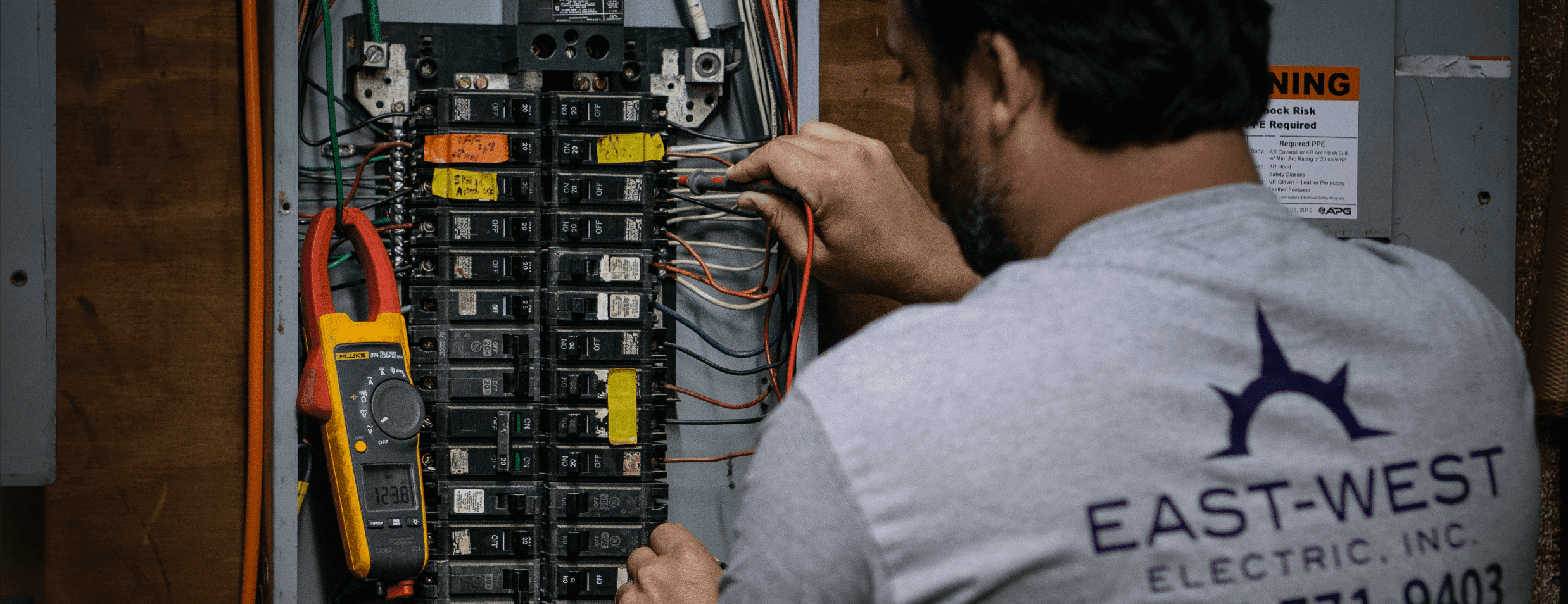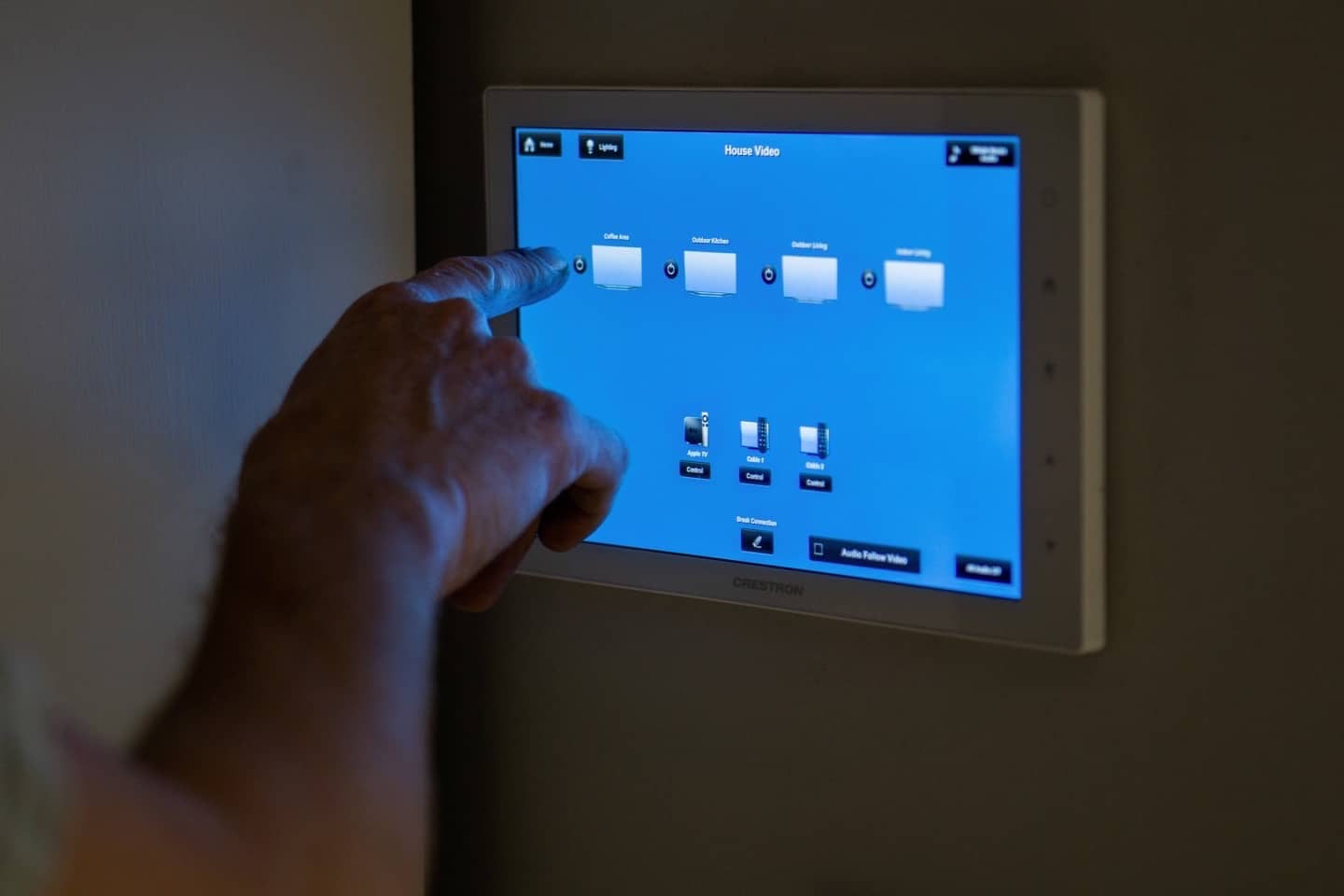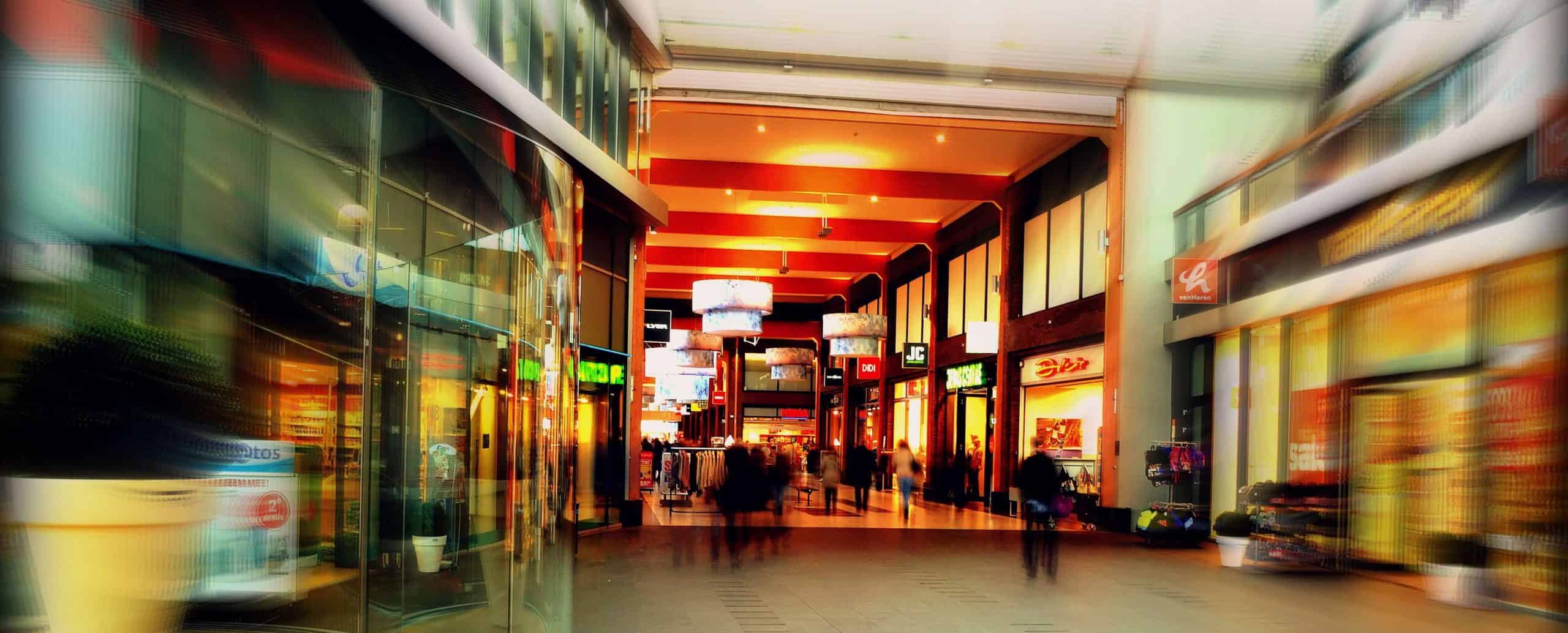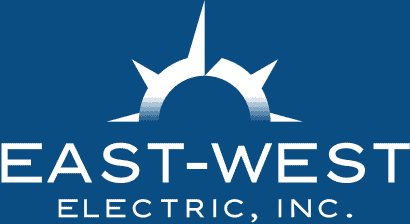Between the 1950s and the 1970s, a lot of homes were equipped with aluminum wiring systems because copper prices were on the rise. Aluminum was a cost-effective and very conductive alternative to copper at the time. However, later on, it was discovered that aluminum was not as safe. Multiple electrical hazards were presented. At East-West Electric, we know the dangers people with aluminum wiring at home can face. Here is a guide on what to do if this is your case.
Aluminum Wiring Dangers
Whenever people buy a home or they’re doing a renovation, one of the main concerns they have is “what is behind these walls?”. Some homes have never had their walls torn down since they were built, so the original wiring is still there. The reason why this is a concern is because of aluminum wiring and all the dangers it represents.
The Dangers of Aluminum Wiring
Even if aluminum wiring has high conductivity and reduced cost, it has many other potential problems:
- It is much softer than copper wiring, so it can easily cut and damage.
- Once aluminum is corroded, it is not that conductive. When copper corrodes it can still be conductive and can provide a steady flow of power. Aluminum cannot, the power conducted can be reduced or stopped completely.
- When aluminum gets hot it expands and contracts. This fluctuation in size can make connections between wires lose.
These factors make aluminum wiring more likely to overheat and create electrical fires.
The Warning Signs
If you are not sure about having aluminum wiring at home, here are some warning signs that you can look out for:
- Your lights are flickering without any reason or cause
- Your electrical outlets and light switches are warm or discolored
- When you connect electrical devices to an outlet there are sparks or smoke
- Your breakers are constantly tripping
- Your fuses are constantly blowing
These issues might be annoying at first, but they can easily turn into serious damage to your family’s safety or to your home if you leave them unattended.
Getting Your Home Up To Electrical Safety Code
Building codes can feel like a hassle that means a lot of work. These codes, however, are made to keep us safe. A poorly built foundation can mean severe damage to your home. The same goes for poor electrical wiring. Cutting corners in this matter could cost you your entire home. It is very important to understand every electrical code and standard when you buy a home.
Target Important Areas
The best way to get your home up to code is to target important areas. This means the places that have heavy electrical usage. For example, bathrooms and kitchens. In the bathroom, wires can be damaged by moisture, causing electrocution. In the kitchen, energy is consumed in large amounts when using different appliances. Both of these locations have to be inspected by a licensed electrician to make sure they are up to code.
Additionally, there are other places that you need to target:
- Wiring
- Electrical panel
- Home additions
Get A Licensed Electrical Inspection
The best way to make sure your home or commercial property is up to code is to have it inspected by a professional electrician. With so many potential problems, only a professional can identify what work needs to be done. If you need to learn more about the dangers of aluminum wiring at home, contact East-West Electric now!
Additional reading: When you should have a commercial electrical inspection






